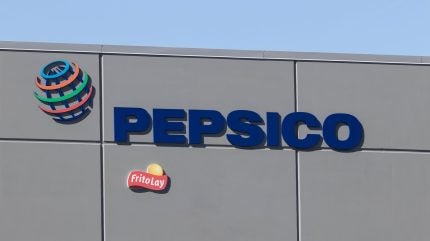
US food and beverage giant PepsiCo has linked up with local grocery heavyweight Walmart on a regenerative agriculture scheme covering million of acres of farmland.
The manufacturer of brands including Quaker and Lay’s said investments worth $120m are being pumped into the scheme over the next seven years to support US and Canadian farmers in attempts to improve soil health and water quality. It is not sharing a breakdown of each company’s contribution but a spokesperson told Just Food “this latest collaboration marks a significant investment”.

Discover B2B Marketing That Performs
Combine business intelligence and editorial excellence to reach engaged professionals across 36 leading media platforms.
PepsiCo said the aim of the scheme is to deliver around four million metric tons of greenhouse gas (GHG) emission reductions and removals by 2030, based on practices introduced on two million acres of farmland.
Jim Andrew, PepsiCo’s chief sustainability officer, said: “Farmers know their business better than anyone else, and what we hear from them is that for regenerative agriculture to make business sense, three things need to happen. They need economic support, social and cultural support, and agronomic support. This strategic collaboration with Walmart will advance our shared goal to have farmers’ backs as they transform farming in a way that benefits the planet and people.”
It is not the company’s first initiative in this area.
In 2021, PepsiCo launched an internal co-investment fund to incentivise the design of “innovative solutions that contribute to our Positive Agriculture agenda”. To date, $1.8m has been granted through the fund.

US Tariffs are shifting - will you react or anticipate?
Don’t let policy changes catch you off guard. Stay proactive with real-time data and expert analysis.
By GlobalDataIn September 2022, it announced a seven and a half year commercial agreement with ADM to collaborate on projects that aim to expand regenerative agriculture across shared North American supply chains.
And in March this year it made a $216m multi-year investment in strategic partnership agreements with farmer-facing organisations Practical Farmers of Iowa (PFI), Soil and Water Outcomes Fund (SWOF) and the Illinois Corn Growers Association (ICGA) to drive adoption of regenerative agriculture practices across the US. PepsiCo said it “specifically carved out funding” from this investment to be allocated to support this new collaboration with Walmart, the company’s first, large-scale collaboration with a retailer.
“By joining forces, we will leverage our size and scale to offer a voluntary, flexible approach to regenerative agriculture that gives farmers a seat at the table, recognises the diversity of agriculture and that one size does not fit all,” the spokesperson said.
In measuring the success of the scheme, PepsiCo said it “considers an acre as delivering regenerative impact when the adoption of regenerative agriculture practices results in quantified improvements in at least two of the environmental impact areas, with a preference for GHG to be one impact area”.
It said it is working with organisations such as the World Wildlife Fund, the Sustainable Markets Initiative and the Science Based Targets Network, to “help guide supportive and credible regenerative agriculture outcomes measurement”.
In its 2022 Environmental, Social and Governance Summary, it reported an increase in its regenerative farming footprint to more than 900,000 acres globally.
The company said it recently engaged consumers around its agriculture efforts with Lay’s Golden Grows Here – “a campaign focused on highlighting Lay’s proprietary, sustainably sourced potatoes and the farms that cultivate them”.
Regenerative agriculture is a conservation and rehabilitation approach to food and farming systems focusing on topsoil regeneration. The idea is that this increases bio-diversity and improves the water cycle, increasing resilience to climate change.
Elsewhere on Just Food




